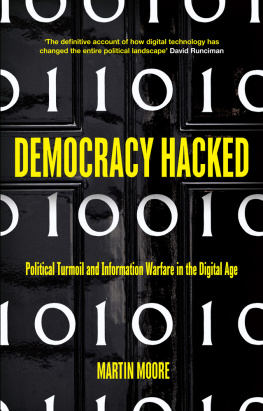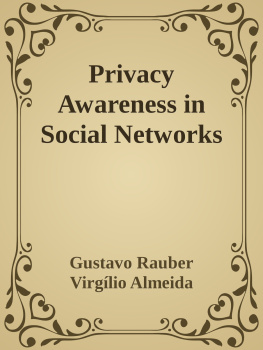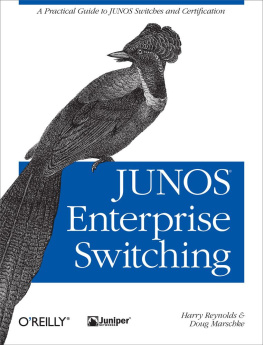Acknowledgements
Big thank-yous to:
Funkwhale, Mastodon, PeerTube PixelFed and Write Freely for permission to use their logos in the diagrams
Kevin Benyon for publishing advice
Everyone who has bought this book
Developers who work on free open alternatives
People who have switched their social media to ethical alternatives
1. A SEA OF PROBLEMS
Just after the Second World War, George Orwell published his seminal dystopian novel 1984. Amongst other things, it included a device called a Telescreen:
The telescreen received and transmitted simultaneously. Any sound that Winston made, above the level of a very low whisper, would be picked up by it...
Nowadays, some television sets really do have built-in microphones that listen to what you say even if its private, and carry a warning buried in the small print admitting as much:
Please be aware that if your spoken words include personal or other sensitive information, that information will be among the data captured and transmitted to a third party
-Samsung Smart TV Privacy Policy quoted by Cnet News, 8th Feb 2015
In a recent interview with The Verge, the Chief Technology Officer of Vizio said their business model for smart TVs was based on making money from collecting data about users:
The greater strategy is I really dont need to make money off of the TV. I need to cover my cost.
-Taking the smarts out of smart TVs would make them more expensive, The Verge website, 7th Jan 2019
What on earth is going on?
Why are manufacturers suddenly selling our personal data to other people? Isn't it enough that we buy their products?
Data Sales
Part of the answer is that buying and selling data has never been more lucrative and easy to do.
Many large businesses are now almost entirely based around gathering information on their users, often through supposedly free services or apps.
To give a hypothetical example, a health insurance company can work out your premiums by secretly monitoring your diet and lifestyle. They can buy data from your supermarket loyalty card and from a GPS sports tracking app, which lets them build up a profile of everything you eat, drink and do, and use it to work out how healthy you are.
It might not be fair or accurate, but because it's done in secret you have no way of challenging it as you don't even know it's happening.
This is why it is so important to remember that "free" apps are almost always paid for by gathering data about you and then selling it on. That's why they're "free".
If someone followed you in real life taking photos and recording your conversations, you would call the police. Why do people accept smartphone apps spying on them in a similar manner?
Impenetrable Small Print
Perhaps it's because we don't know what apps or devices do any more.
In the old days, gadgets did pretty much what you bought them for. A hifi played records, a car let you drive to places and a fridge kept your food cold.
Nowadays, computers have been placed into almost everything and require you to sign a legal agreementbefore you can use them. The agreements are so long, and there are so many different agreements to read through, that nobody reads any of them.
The language in a typical "Terms of Service" document is intended for lawyers, and there's often a clause saying the company reserves the right to change terms at any time, so it feels like they could pull the rug from under you anyway.
Whatever their legal status, it's difficult to see such agreements as meaningful consent. To most people, they're just a wall of text they click on to make it go away.
Unfortunately, because of this, most people don't realise quite how much of their privacy they are losing.
For example, here is an excerpt from the terms you have to agree to if you upload files to Google Drive:
you give Google a worldwide license to reproduce, modify, create derivative works communicate, publish, publicly perform, publicly display and distribute [the user's files].... This license continues even if you stop using our services
-Google Drive Terms of Service, 27th Jan 2019
In other words, Google can publish publicly whatever you send them and distribute it to others. In effect, anything you send to Google Drive is no longer private or under your control, and this carries on even if you stop using the service. It makes you wonder how many Google Drive users realise this.
Even if the terms pass muster, there are other strange tactics software makers can use to manipulate your behaviour.
Dark Patterns
A dark pattern is when a site or app tries to trick you into doing something you don't really want to do.
For example, many sites nowadays pop a SUBSCRIBE TO OUR NEWSLETTER! window up that stops you using the site, and do their best to hide the X that closes the window (for example by having a barely-visible light grey X on a white background). This means many users incorrectly think they have to give their email address in order to access a site.
In 2016, Microsoft seemed to be forcing their controversial telemetry-laden Windows 10 upgrade on people who didnt ask for it. They offered people two options: Upgrade Now or Upgrade Later. A third option, to not upgrade at all, was hidden away elsewhere in the menu system:

Microsoft's version of meaningful consent
Nosey Apps
Windows 10 was also an example of another questionable behaviour: offering people apps free of charge which quietly or secretly collect personal information in the background.
Companies operating online often collect more data than is needed to make the app work. Sometimes apps seem to have two purposes: a public one that is attractive to users and a secret one that is much more disturbing.
In 2018, the Dutch Government commissioned a report on Microsoft Office. Heres what they found:
Microsoft systematically collects data on a large scale about the individual use of Word, Excel, PowerPoint and Outlook. Covertly, without informing people. Microsoft does not offer any choice with regard to the amount of data, or possibility to switch off the collection, or ability to see what data are collected
The Dutch [Data Protection Authority] concluded that Microsoft violated data protection law on many counts, amongst others through the lack of transparency and purpose limitation, and the lack of a legal ground for the processing.
-"Impact assessment shows privacy risks in Microsoft Office ProPlus Enterprise, PrivacyCompany.eu, 13 Nov 2018
So, why the need for strange tactics? Why are companies so eager to gather information about us? Why has personal data become so valuable?
In part, this question has it backwards: data has become so valuable precisely because these kinds of data-gathering tactics are possible. The ability to easily spy on people via the internet has made the ad industry move into very dark territory.
Hypertargeted Advertising
Companies who buy advertising have always been willing to pay more if it goes to more specific audiences. A nappy manufacturer has always paid more for ads if they are shown to people with small children, for example.
In the old days, the nappy manufacturer would advertise in magazines aimed at parents, and the magazine's publishers would commission surveys to prove that their audience was mainly people with kids. No one was spied on because there was no need to. The publisher's survey took care of pairing the advertiser with their target audience.

![switching.social [switching.social] The Switching Social Handbook](/uploads/posts/book/131346/thumbs/switching-social-switching-social-the-switching.jpg)






